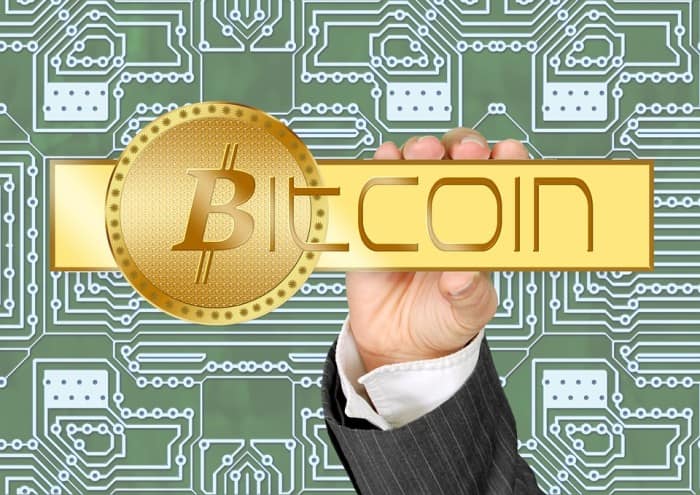
In the last few months, Bitcoin has experienced considerable fluctuations in its prices, which has resulted in some people earning millions from crypto coins. This has initiated a hot debate in the media and among market watchers about the future of Bitcoin and how viable the investment is. Most people have blindly rushed to invest in cryptocurrencies without understanding the philosophy of Bitcoin. This has led to many investors falling for scammers and fraudsters who steal from them without shame.
According to statistics, the number of Bitcoin scams reported rose from 550 in the previous financial year to more than 2,000 in the fiscal year 2018-2019. Furthermore, recent studies show that Bitcoin scams have become more popular and at least one new bitcoin scam arises each day. Since most cryptocurrencies are independent and function free from the interference of the central bank and another financial agencies, losses incurred due to theft and scams cannot be retrieved.
Here are some of the Bitcoin scams to watch out for:
Fake Bitcoin Exchanges
A few months back, South Korea financial authorities and the local Bitcoin community busted one of these crafty bitcoin scams: a fake exchange known as BitKRX. With no regulatory body to oversee Bitcoin exchange, BitKRX had established as part of a vast trading platform that stole money from people.
Apart from that, fraudsters also come in the form of apps and fake websites that pretend to offer huge discounts and link you to exchange markets. To avoid Bitcoin exchange frauds and scams, adhere to well-known bitcoin exchanges such as nakitcoins.com and frequently visit Bitcoin forums for more information.
Ponzi Scheme
Ponzi scams are schemes that promise huge chunks of returns overnight or some other outrageous benefits. One viral Bitcoin scam was MiningMax, which stole over $200 million. The 14 fraudsters were arrested, but the Bitcoin investors never got their coins back.
Before investing your bitcoins in schemes, always consult several Bitcoin experts.
Hardware Wallet Theft
A hardware wallet is a physical gadget that looks similar to a USB flash drive and it is used to keep private keys. Due to its ability to help crypto investors protect their bitcoins, many people have begun purchasing them.
Nonetheless, reports indicate that these devices have some in-built weakness that hackers can break and steal the user’s keys. Access to private keys of a Bitcoin wallet enables hackers to siphon your funds when the account is activated.
Malware
These are techniques used by hackers to get passwords needed to access your Bitcoin account. If your Bitcoin wallet is linked to the internet, malware can be used to gain access and siphon your bitcoins. Malware can be found in your email, website, or on social media sites.
Fake cryptocurrencies
Lately, a common scam has presented itself in the form of alternative bitcoins. Fraudsters are advising investors that its “too late” to invest on bitcoins and therefore, they need to invest in an upcoming crypto coin. Although there are other crypto coins such as Ethereum, most of what is claimed by the fraudster is a lie. For example, the cons behind My Big Coin managed to steal over $6 million from clients who intended to invest in real cryptocurrencies.
Tips on How to Protect Yourself from Bitcoin Scams
- Avoid clicking suspicious links concerning bitcoins.
- Keep your private keys and passwords safe and secret.
- Do not enroll in Bitcoin schemes without consulting different Bitcoin experts.
If you intend to make a Bitcoin trade, look for a trusted Bitcoin exchange platform.
How bitcoins work
Before investing in bitcoins, it is always important to familiarize yourself with how they work. Similar to other crypto coins, Bitcoins function under a technology called blockchain. Based on research, a blockchain is a decentralized digital ledger that records transactions across different computers so that any involved record cannot be altered retroactively without the alternation of all subsequent blocks. When buying bitcoins, a network of computers ensures that the transactions happens according to your instructions by confirming the purchase details such as time of transaction, dollar amount, and participants.
When you buy bitcoins using the US dollar, financial institutions and credit card companies must verify the accuracy of the transaction. Also, via a system known as hashing, bitcoin independently confirms the transaction again. Moreover, to add a new transaction to the blockchain, a network of computers must solve a complex mathematical problem known as a “hash.”
It takes computers and super computers approximately ten minutes to solve a hash. During this time, the computers confirm the accuracy of the added transaction.
What you need when buying bitcoins
Before purchasing bitcoins, here are common things you need to have:
- A digital wallet which enables you to store your bitcoins.
- Secure internet connection.
- A bank account, debit card, or credit card.
- Personal identification documents.
